Roland Thar
Roland Thar (PhD) is the CEO of the company Pyro Science GmbH (Aachen, Germany), a manufacturer of optical sensing technology. He obtained his master’s degrees in physics (Dipl.-Phys.) and in electrical engineering (Dipl.-Ing.) at the University of Aachen (RWTH Aachen, Germany) and acquired his PhD in marine microbiology at the University of Copenhagen (Denmark). During his scientific and industrial career he has been involved in the development and application of optical sensing technologies for more than 15 years. Co-founder of the company Pyro Science GmbH
Sergey M. Borisov
Sergey Borisov graduated from Chemistry Department of Herzen State University St. Petersburg (Russia) in 2000 and obtained his PhD from the same university in 2003. After a postdoc at the University of Regensburg he joined the Institute of Analytical Chemistry and Food Chemistry at Graz University of Technology in 2006. Currently he holds a tenure-track University Assistant position. The main research interests of Sergey Borisov include synthesis of new luminescent dyes and their application in optical sensing materials. He is a (co)author of 74 publications in peer reviewed journals, 3 book chapters and has 6 patents/patent applications.
Torsten Mayr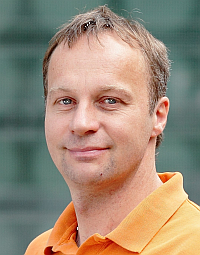
Torsten Mayr studied chemistry at University of Regensburg in Germany and obtained his PhD at the same university in 2002. After working as postdoc researcher at the Karolinstka Institute in Stockholm, Sweden, he joined the Institute of Analytical Chemistry and Food Chemistry at Graz University of Technology in 2004. Currently he is Associate Professor in Analytical Chemistry and is leading the research group “Applied sensors. He is (co)author of more then 45 publications in peer reviewed journal.
Jan Fischer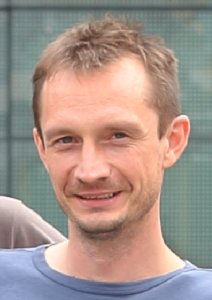
Jan Fischer studied process and environmental engineering before he changed to marine environmental science. He obtained his PhD at the Max-Planck-Institute for Marine Microbiology (Bremen, Germany) where he was involved in the development and application of deep sea sensing technology. During his time as postdoctoral fellow at the same institute, he developed marine sensor systems, including an autonomous telemetry buoy for bio-optical parameters in the arctic, underwater electrochemical and optical sensing systems and solute imaging technologies. Since two years, he is responsible for concepts and designs of optical chemical sensor systems for a wide range of applications at the Graz University of Technology (Austria), and at Pyro Science GmbH (Aachen, Germany).
Günter Mistlberger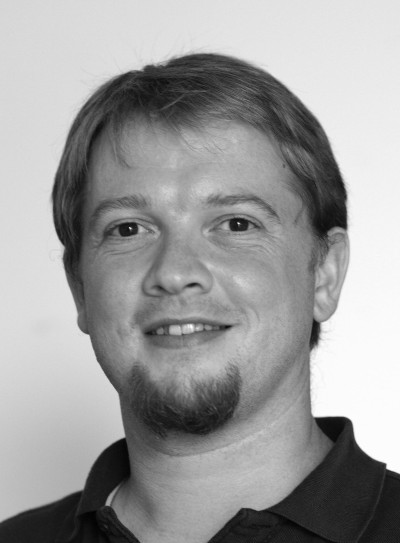
Günter Mistlberger received his master’s degree from the Graz University of Technology, Austria after performing the practical work for the thesis at Lund Institute of Technology, Sweden. After his PhD working with magnetic optical chemical sensors, he spent three years as PostDoc in Prof. Eric Bakkers group at the University of Geneva, Switzerland. He now finishes his Schrödinger Fellowship at Graz University of Technology, where he will thereafter continue to work in an EU-FP7 research project dealing with the optical detection of human health related contaminants in the ocean. His research interests are in optical chemical sensors, in luminescence based techniques and in material chemistry for optical sensor development
Philipp Lehner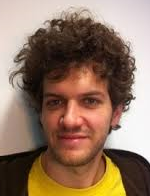
Philipp Lehner received his master’s degree in chemistry from the Graz University of Technology, Austria. He is now working with Prof. Ingo Klimant on his PhD thesis at the same University. In his work he is developing trace- and ultra trace optical oxygen sensors and accompanying readout devices. These are used in a joint ERC research project with marine biologists from Aarhus University and the University of Southern Denmark in Odense that aims to study life at borderline anaerobic conditions.
Christoph Staudinger
Christoph Staudinger started studying chemistry in 2008 at Graz University of Technology, Austria. He received his master’s degree in 2014, working on ultra trace optical oxygen sensors at the Insitute of Analytical Chemistry and Food Chemistry under the supervision of Prof. Ingo Klimant. He will continue with his PhD at the same institute focussing on optical pH and CO2 sensors for marine applications.
Bernhard Müller
Bernhard Müller started his chemistry study in 2008 at the Graz University of Technology in Austria. He received his master’s degree working on optical sensors for trace oxygen measurements at the Institute of Analytical Chemistry and Food Chemistry under the supervision of Prof. Ingo Klimant. He currently works on his PhD thesis focusing on the development of optical sensors for the detection of biotoxins and ammonia for applications in marine science.
Daniel Aigner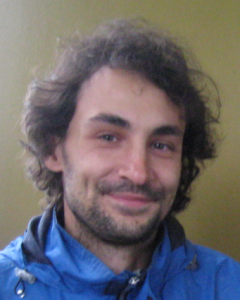
Daniel Aigner studied Industrial Chemistry (2003 – 2010) at Graz University of Technology, Austria. Since 2010, he has been working on his PhD thesis in the field of optical sensors under the supervision of Prof. Klimant at the same University. His work has focussed on developing sensitive materials for the use in fluorescence pH sensors. Besides his passion for science, he is enthusiastic about alpine sports, football and travelling.
Martin Strobl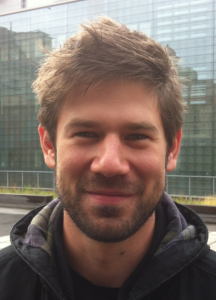
Martin Strobl studied Chemistry at the University of Technology of Graz (Austria) from 2006-2013. Since September 2013, he is working on his PhD thesis under the supervision of Prof. Mayr at the same university. His work is focusing on covalent coupling of fluorescent pH indicators into polymer matrizes.
Josef Ehgartner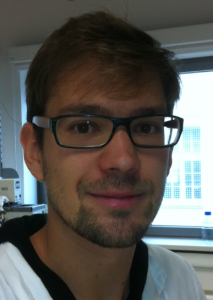
Josef Ehgartner received his master’s degree in chemistry from the Graz University of Technology, Austria. He is now working with Prof. Torsten Mayr on his PhD thesis at the same University. In his work he is developing optical sensors for microfluidic devices. These sensors are used in a research project with academic and industrial partners throughout Europe. Outside his interests in science and nature he loves travelling and hiking.
Bernhard Müller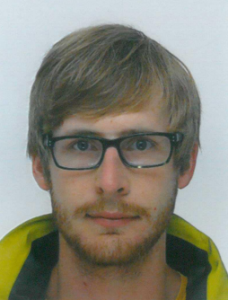
Bernhard Müller studies Chemistry at Graz University of Technology, Austria since 2008. He is currently working on his master thesis with the topic “Nanosensorparticles for application in microfluidic systems” under the supervision of Prof. Mayr at the Institute of Analytical Chemistry and Food Chemistry. During his bachelor degree he studied abroad with the Joint-Study Exchange program at the University of Calgary (2011-2012) for one year. Outside his interests in science and nature he is a keen mountaineer, loves travelling and always enjoys a good laugh with friends.
Peter Zach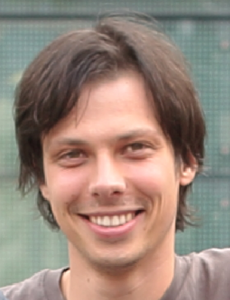
Peter Zach started studying Chemistry at the University of Technology of Graz (Austria) in 2009 and received his Bachelor degree in August 2012. Afterwards he continued to study Technical Chemistry (Master) and attended Summer School in Yokohama, Japan to advance his knowledge about fuel cells. He has been working on his Master thesis at the Institute of Analytical Chemistry and Food Chemistry since November 2013. His work focuses on the synthesis of new phosphorescent porphyrins with enhanced solubility and absorption in the NIR region for oxygen sensing materials. Besides his interest in science, he enjoys participating in various types of sport and he also volunteers at the “red cross” as an emergency medical assistant since October 2013.
